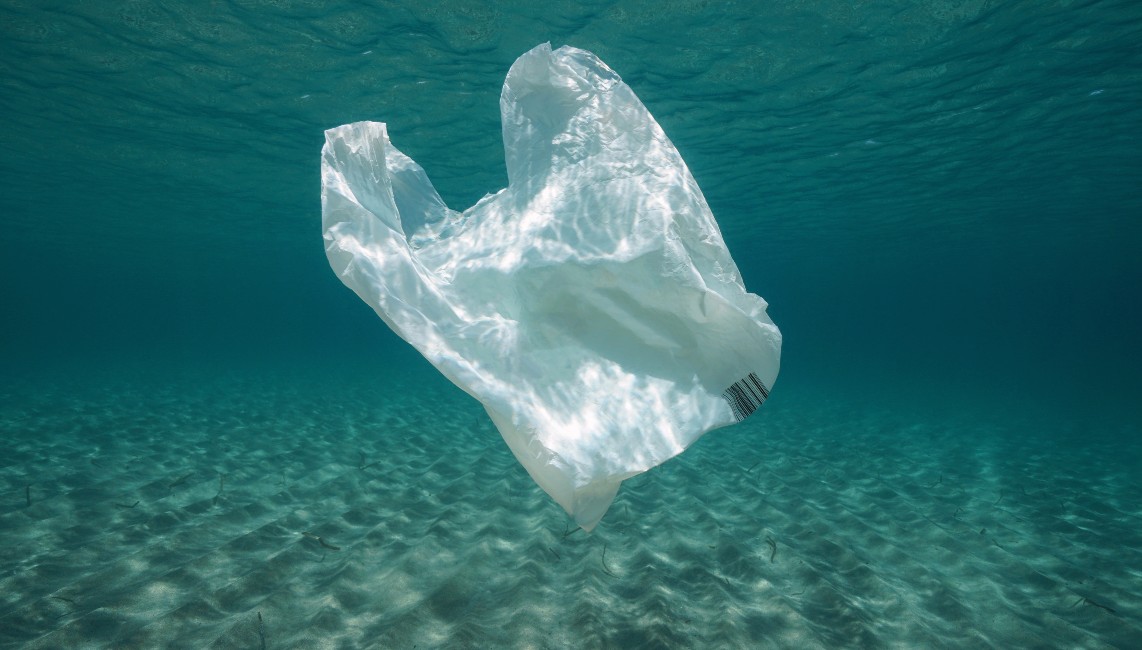
We all know that plastic lasts for a long time. A light weight, cheap, easily manufacturable material, plastic is a super material when it comes to making things. While the longevity of plastic can be seen as a benefit when making products, what happens to that plastic when we no longer need it?
Recycling is something we should all do more, but when items cant be, or aren’t recycled, how long do they really take to breakdown?
Everyday items such as a paper towel, a newspaper, or a cardboard box, can take from 2-4 weeks up to 2 months. These paper based items degrade quickly, however our other household waste isn’t so easily disposed of.
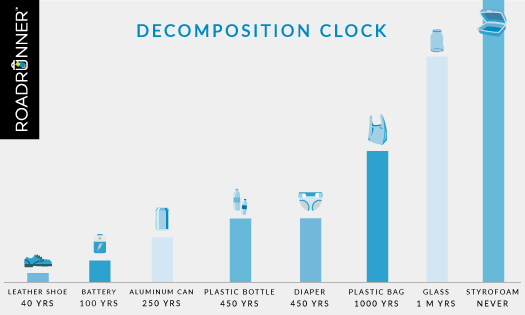
Plastic Shopping Bags: 20 years
Usually only used for the short journey from the shop to the car, and then the car to your house, shopping bags only have a working life of a few minutes. This is horrifying when you know that these bags can take up to 20 years to breakdown!
Why not take the plastic bags you have at home and reuse them as much as possible, taking them to a soft recycling point when they eventually break. Make a switch to fabric tote bags instead for your shopping? Not only can these bags be used for years, they are washable, and at the end of their lives they can be repurposed, and recycled easily.
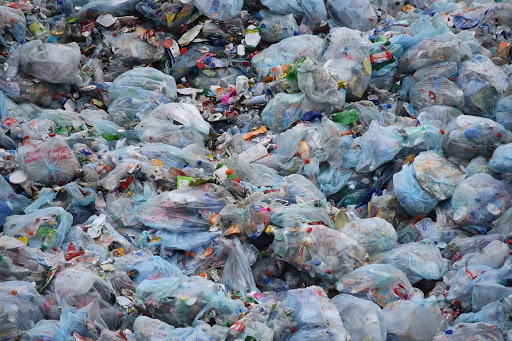
Takeaway Coffee Cups: 30 years
Takeaway coffee cups, while made from paper, as lined with plastic to keep them waterproof. This means it cane take 30 years for each cup to breakdown. When we consider that 7 million coffee cups are thrown away in the UK every single day, we can quickly see how this is a massive problem!
Switching to a reusable cup is not only great for the planet, but your wallet also, as many coffee shops offer discounts when you bring your own cup.
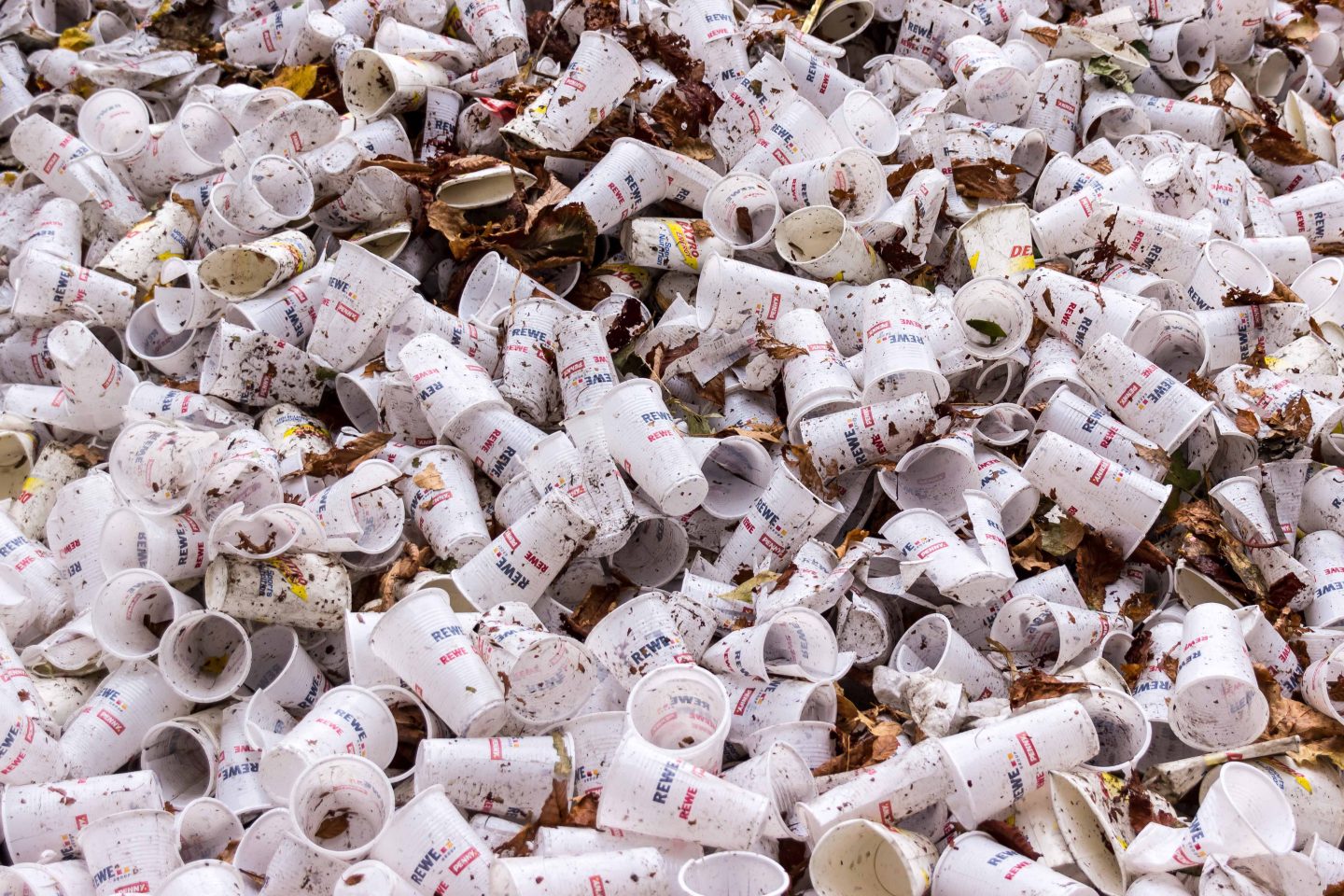
Wet Wipes: 100 years
Wet wipes cause around 93% of all sewer blockages, causing millions of pounds of damage a year in the UK. These wipes are used in huge quantities and only have a useful life of a couple seconds.
The Marine Conservation Society released a fact that an average of 18 wet wipes were found on average per 100m of beach at their Great British Beach Clean 2020. A truly staggering amount of wipes to be found!
After being flushed, or thrown away, these wipes can take a century to break down. Made from plastic they break down into microplastic particles, releasing chemicals as they degrade. A shocking 11 billion wet wipes are used in the UK every year, so the time is now for all of us to cut out wet wipes as much as humanly possible.
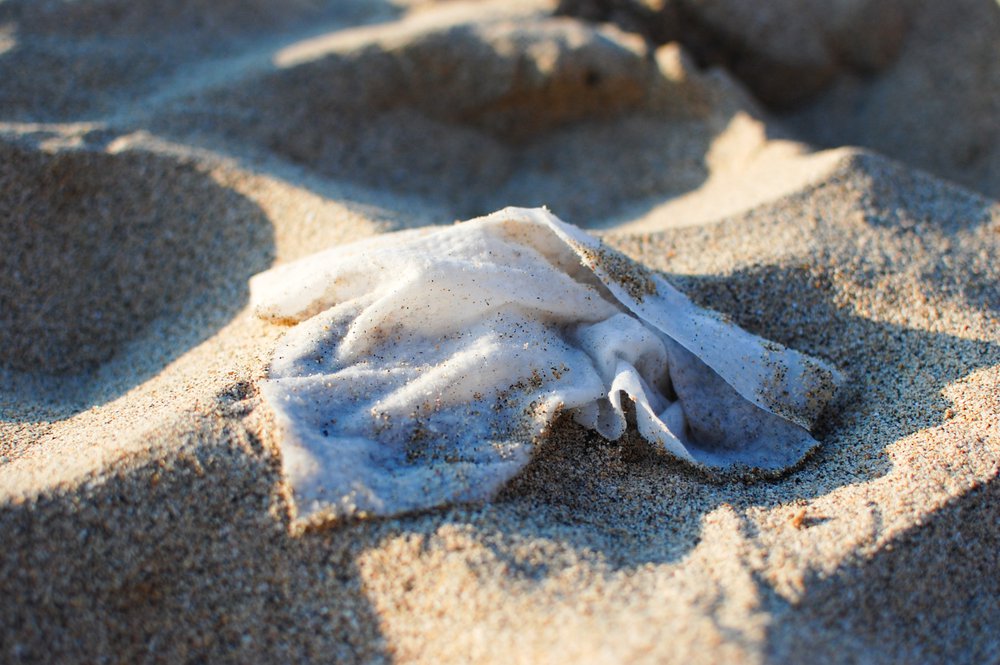
Aluminium Cans: 250 years
Drink and food cans can take up to 250 years to breakdown. This is so frustrating to learn, when we know that aluminium cans are an infinitely recyclable material. Every minute of every day, an average of 113,200 aluminium cans are recycled across the globe. A recycled drinks can be recycled and back on supermarket shelves as new drink cans in as little as 60 days; and when we consider that it takes quarter of a century for these cans to breakdown when they aren’t recycled, it seems not only foolish but irresponsible not to recycle our aluminium cans.
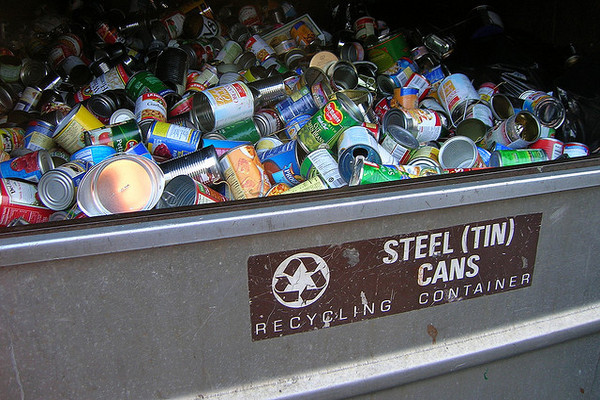
Plastic Bottles: 450 years
Plastic bottles are used for a multitude of liquids. From drinks, to cleaning chemicals, to shampoos, the list is endless. Easily recyclable, these bottles can be made into new items with ease, however the majority of plastic bottles are not recycled, being disposed of incorrectly.
Refilling a bottle, rather than buying new can have a huge impact on reducing plastic waste. A refillable bottle has multiple benefits besides from being more environmentally friendly. On top of cutting down on plastic waste, it also saves you money as you do not need to buy a bottle each time you are thirsty.
“If just 1 in 10 Brits refilled just once a week, we’d save around 340 million plastic bottles a year.”
https://www.water.org.uk/news-views-publications/news/national-refill-day
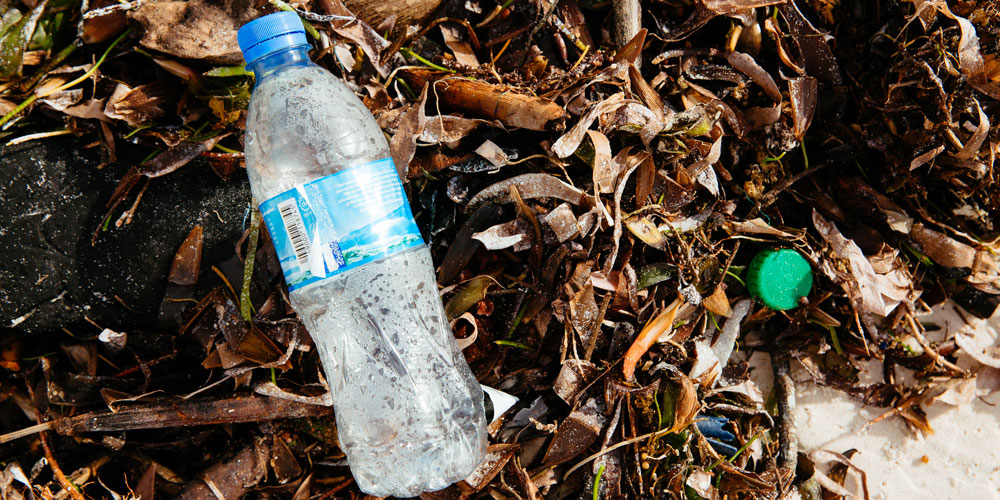
Plastic Toothbrush: 500 years+
Our bathrooms are huge sources of plastic pollution, from microbeads in body washes, to wet wipes, to cotton buds, and sanitary products. An unlikely plastic problem however, are our toothbrushes. There are 3.5 million toothbrushes sold annual worldwide. Made from nylon and polypropylene plastic, these toothbrushes often end up in landfill where they can take up to 500 years or more to decompose.
A bamboo alternative takes significantly less time to breakdown and therefore is a more sustainable option.
Conclusion
While these timelines are great for working out how long plastic items can last, what we aren’t addressing is what happens after they finally breakdown? Unlike other materials, plastics do not biodegrade, they simply break into smaller and smaller pieces known as microplastics.
Sources:
- https://wwf.org.au/blogs/the-lifecycle-of-plastics/
- https://plasticfreenorthdevon.org/blog/the-disposable-coffee-cup-effect-stopandswap#:~:text=10%20Alarming%20Facts%20about%20Single,are%20sold%20in%20disposable%20cups.
- https://www.mcsuk.org/ocean-emergency/ocean-pollution/water-quality-and-sewage/wet-wipes-sewage-debris/?gclid=CjwKCAjwloynBhBbEiwAGY25dLOXsmXAgwBgVyJMKthjAjadwzU3bL-Dzvi1ZGjU6O1X_2OlqlzmOhoC6ooQAvD_BwE
- https://www.mcsuk.org/news/our-seas-are-swimming-in-wet-wipes-its-time-to-take-action/#:~:text=11%20billion%20wet%20wipes%20are%20used%20in%20the%20UK%20every,200%20wet%20wipes%20per%20person.
- https://www.envirotech-online.com/news/water-wastewater/9/breaking-news/should-we-ditch-wet-wipes/46063
- https://thinkcans.net/aluminium/10-aluminium-facts
- https://www.water.org.uk/news-views-publications/news/national-refill-day
